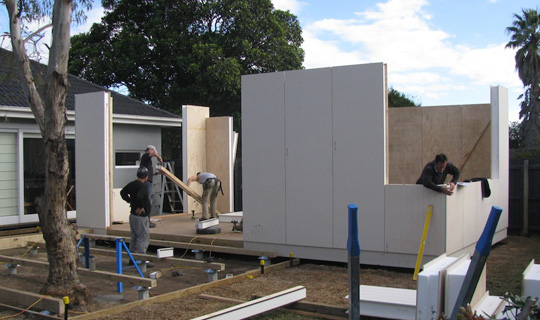Tuesday, 03/03/2026 | 19:17 GMT+7
Kingspan Insulation has developed what it calls "the most significant insulated panel technology breakthrough in a decade".
The new 'IPN QuadCore' insulation panel technology could deliver up to a 20% improvement in the thermal efficiency of buildings, along with lower lifetime costs.
Kingspan Insulated Panels managing director Gilbert McCarthy said: “This is our most significant insulated panel technology breakthrough in a decade.
“The property market demands performance, energy-efficient buildings that deliver low risk high-net yield and reduced environmental impact. The unprecedented performance of IPN-Quadcore helps to deliver these superior buildings, making the strongest business case yet for sustainability.”
According to Kingspan, the new core technology was found to save a warehouse of 5,000m2 almost 14% on its annual energy demand compared to previous insulation models.

Kingspan says the panel technology could help buildings achieve higher scores in LEED and BREEAM environmental accreditation schemes and its new core microcells are more resource efficient than previous cores.
Kingspan was one of more than 200 businesses that this week signed a letter against the Conservative Party's U-turn on its zero-carbon homes policy. The 246 industry leaders said the change as part of the Government's productivity plan undermined business confidence and went against the broad support for the policy.
Academics at Brunel University London have presented the findings of research into a new cost-effective way of manufacturing energy-saving vacuum insulation panels.
Dr Harjit Singh claims using the volcanic ore perlite to make panels could save generate cost savings of 30%. “Using perlite also has a number of other advantages, said Dr Singh. “Perlite has a significantly lower embodied energy content than fumed silica. Perlite is manufactured at less than 1000°C whereas making fumed silica requires much higher temperatures, up to 3000°C.
“In terms of performance vacuum panels are five to eight times more effective a form of insulation than rock wool or solid foam panels. When you consider 43% of the UK’s CO2 emissions are from buildings the potential significance of a switch to vacuum insulation panels is obvious."
Anh Tuan







